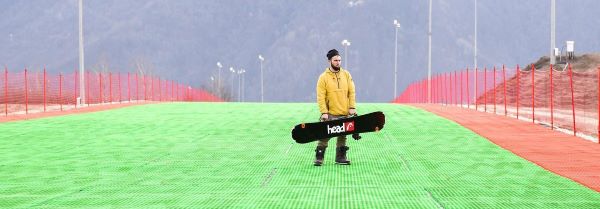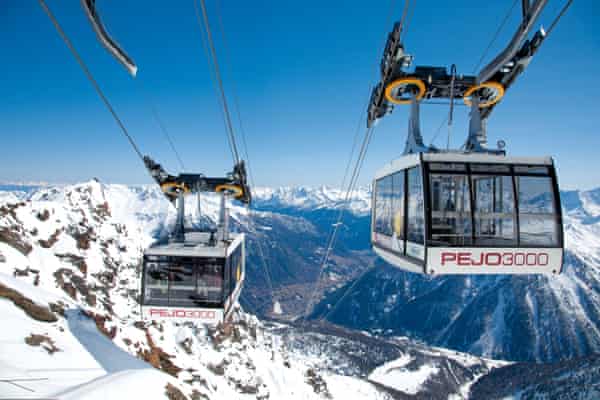Which ski lane will plastic take?
Two very different Italian approaches to the use of plastic
Every other topic being blown off course by corona, this got snowed under as well. But sooner of later it will resurface: the world of ski, full plastic or plastic free? Records set by two Italian companies in december 2019 show different angles.
Synthetic ski slope
Just a few months ago – it seems another life, another world – an Italian company broke a world record. Bergamo based (Bergamo of all places, arguably the hardest corona-hit town in Europe) Neveplast created the longest artificial ski slope in the world. In Veduchi, Russia. Official opening at the end of December 2019: a 1.130 mtr long dry synthetic ski slope.

Neveplast, 14 employees and a 4,5 million turnover, has created slopes, parks and lanes in various other countries as well, such as a rooftop in Copenhagen, in Valencia and in Kopaonik in Serbia (birthplace of Novak Djokovic), offering ski enthousiasts the possibility to ski even in times and places without snow, year-round. The company was founded in 1998 and soon became a benchmark in the industry.
Plastic free resort
Neveplast’s projects seem a summersault away from the approach taken by the Pejo 3000 resort in Northern Italy, which recently became Europe’s first plastic free ski resort [read in Dutch, bottom part of item: Piste zonder Plastic]. Reason to do so? The discovery of a significant amount of microplastics in a nearby glacier. When Pejo 3000 – which last winter attracted 137.000 skiers – opened its slopes in early December 2019, the use of plastic bottles, bags, cutlery etc. was banned. The facilty’s three mountain huts no longer stock plastic items, and other measures were to be enacted over the season.
Two Italian examples, two very different sides of a plastic mountain.

Turismo bianco, futuro nero? Is the future of snow tourism pitchblack? Can plastic save it, transform it, or will it help destroy it? Time will tell. But first another uphill battle awaits…